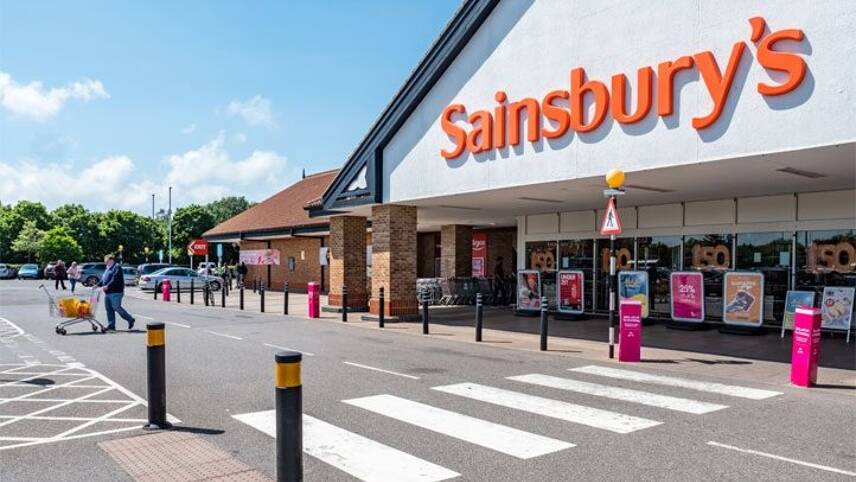Register for free and continue reading
Join our growing army of changemakers and get unlimited access to our premium content

Sainsbury's first set a net-zero target in January 2020
The supermarket first announced its net-zero targets in January 2020 and built upon them with verified, science-based interim emissions targets earlier this year.
Originally, the aim for operational emissions – a term which covers direct (Scope 1) and power-related (Scope 2) emissions – was to deliver a 50% reduction by 2030 and a 100% reduction by 2040, without the use of offsetting. Both targets had a 2019 baseline.
Now, the 100% target has been shifted forward to 2035. Sainsbury’s has delivered a 14% reduction since 2019 and will need to accelerate progress going forward.
Plans for reducing operational emissions going forward include switching to 100% renewable electricity for the whole business and 100% LED lighting in stores by the end of 2021. The lighting scheme is set to reduce energy consumption across the Sainsbury’s retail estate by 20%
However, Sainsbury’s said in a statement that “it will need to collaborate with government, industry, suppliers and academia to share knowledge and find solutions” to deliver all of the emissions reductions needed.
“The clock is ticking; climate targets matter – but action to deliver them matters more,” said Sainsbury’s chief executive Simon Roberts. “The progress we’ve made has enabled us to accelerate our own targets and move faster to cut our emissions.”
Sainsbury’s is not the only major British retailer to have accelerated its net-zero plans. Rival Tesco moved its 2050 net-zero target forward to 2035 late last year and has since published a new ‘climate manifesto’. Similarly, the John Lewis Partnership, which owns Waitrose & Partners, is now developing 1.5C-aligned science-based targets after moving its 2050 net-zero target to 2035.
More broadly, dozens of major players in the UK’s retail sector, under the British Retail Consortium’s roadmap, are plotting a course to net-zero by 2040.
Spotlight on Scope 3
Sainsbury’s has not updated its targets for cutting indirect (Scope 3) emissions at this stage. Its existing target is to deliver a 30% reduction in Scope 3 emissions by 2030, against a 2019 baseline – a goal verified as 1.5C-aligned by the Science-Based Targets Initiative (SBTi). This target bolsters a 2050 ambition for a carbon-neutral value chain, covering both upstream and downstream activities.
This year, the supermarket has written to some 400 of its largest suppliers asking them to set science-based carbon reduction targets and to report progress.
Roberts said: “We recognise that we not only have a responsibility to our colleagues and the communities we serve in the UK, but to those we source from globally, to reduce the impact our business has on the environment.
“We have a strong heritage in reducing our own emissions and are collaborating closely with our suppliers to ensure we’re driving positive change across our value chain too. Tackling the climate emergency requires collaborative and transformational thinking across industry and government, and a willingness to work together and share learnings globally so that we can all take meaningful, immediate action.”
Sainsbury’s’ announcement comes just days before the start of COP26. The business is the summit’s Principal Supermarket Partner – the highest level of corporate sponsorship.
Sarah George


Please login or Register to leave a comment.